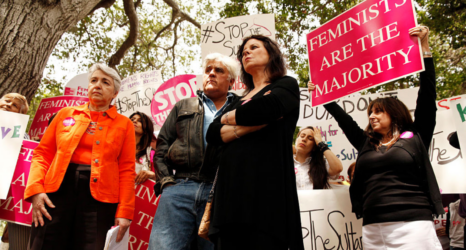Although the term “community care” itself might be new to some, communities have been engaging in the practice of community care for decades. Coming together to pool resources and provide support to our communities is historically a common practice within BIPOC and LGBTQ+ communities. Facing little to no support from outside systems like the government or other publicly funded programs, our communities have creatively developed ways to look out for each other and ensure the well-being of every member.

Growing up in a low-income Latinx community in Los Angeles, I witnessed firsthand what community care is really about. Juggling multiple expenses with very little income, members of my community came together to form a “condina,” or a collective pool of money. People volunteered to contribute money into a collective pot, and then each person would take turns using the money to help offset their expenses.
Condinas became a way for low-income families to borrow money without having to go through an outside source, such as a bank or loan provider, that often requires jumping through numerous hoops without the guarantee of approval. Our condinas worked because there was a sense of mutual trust and respect with those involved, which helped ensure that everyone had an equal opportunity to use the money however they needed. This form of community care helped my family access funds for expenses that felt out of reach with just my mother’s income.
Our ‘condinas’ worked because there was a sense of mutual trust and respect with those involved, which helped ensure that everyone had an equal opportunity to use the money however they needed.
My experience is just one of many examples of how community care works to benefit groups of people. From the Black Panther’s Free Breakfast Program that helped alleviate hunger for many low-income Black children and inspired continued activism, to the creation of clothing swaps for queer and trans people. Community care breeds a sense of collectivism and togetherness—it helps assure us that we are not alone. And it takes all of our participation to make an impact.
Community care has also been a core tenant of the abortion access movement. Even before Roe v. Wade became precedent in the 1970’s, communities worked to ensure that people had access to abortion care when they needed it. Underground networks of women like the Jane Collective took matters into their own hands by learning how to provide the abortions themselves. They tried to keep the price of the procedure as low as possible to ensure lower-income women had access. When our systems are not working to address the needs of our community, it is up to us to step up and find creative solutions to support each other.
In a post-Roe world, community care is even more important. We know we cannot simply rely on systems to protect us, so we must take collective action to invest in the well-being of each other. Whether that’s volunteering to provide emotional support to abortion patients, or creating an abortion care package for your friend, we all have a role to play in this fight.
Find your place in the movement by heading to usow.org/repro and visiting our incredible resource, The Feminist To-Do List: Abortion Access Edition.
Community care is and always will be essential to our movements. We take care of us.
You may also like: “On the Issues With Michele Goodwin,” Episode 69. Fifteen Minutes of Feminism: Heather Booth and the Jane Collective, where Booth discusses the history of the Jane Collective, the connections between our pre-Roe past and post-Roe future, and where we go from here.
Up next:
U.S. democracy is at a dangerous inflection point—from the demise of abortion rights, to a lack of pay equity and parental leave, to skyrocketing maternal mortality, and attacks on trans health. Left unchecked, these crises will lead to wider gaps in political participation and representation. For 50 years, Ms. has been forging feminist journalism—reporting, rebelling and truth-telling from the front-lines, championing the Equal Rights Amendment, and centering the stories of those most impacted. With all that’s at stake for equality, we are redoubling our commitment for the next 50 years. In turn, we need your help, Support Ms. today with a donation—any amount that is meaningful to you. For as little as $5 each month, you’ll receive the print magazine along with our e-newsletters, action alerts, and invitations to Ms. Studios events and podcasts. We are grateful for your loyalty and ferocity.





